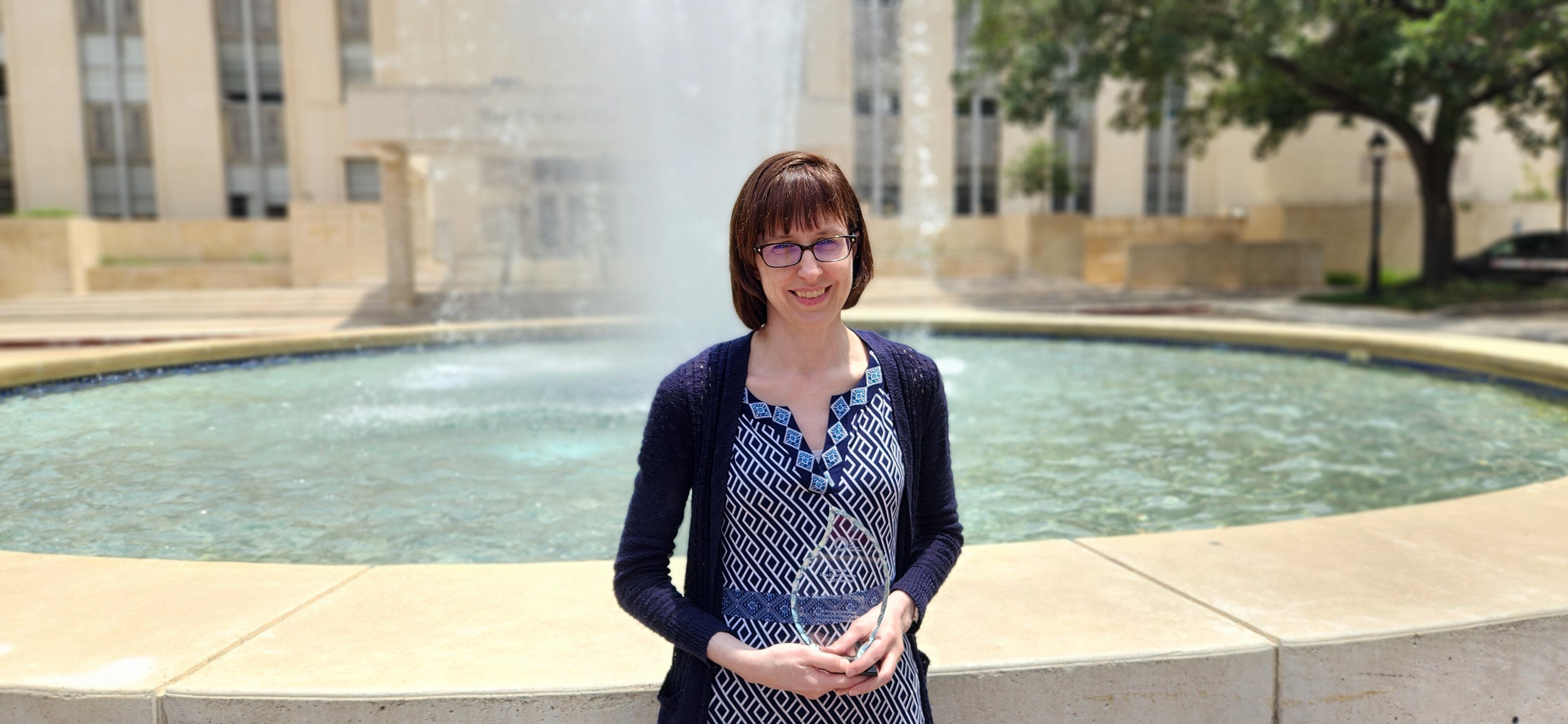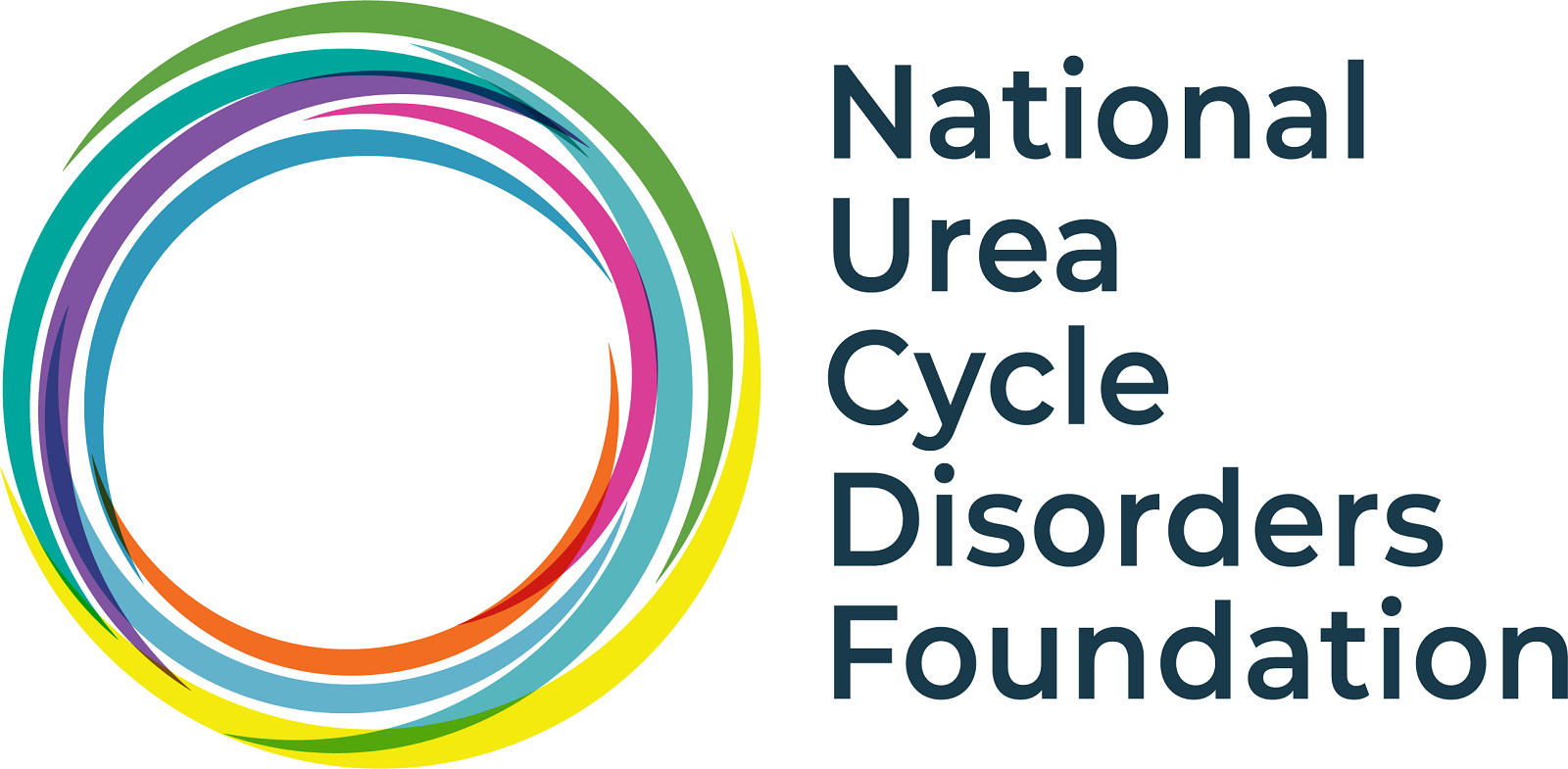
Lindsay Burrage, MD, PhD, of the Baylor College of Medicine, with a plaque commemorating her opening presentation in the series "Urea Cycle Disorders ECHO: The Essentials." Photo courtesy of Sandesh Nagamani.
Lindsay Burrage, MD, PhD, of the Baylor College of Medicine kicked off the first session of NUCDF's new educational series for clinicians, "Urea Cycle Disorders ECHO: The Essentials." Her talk highlighted recognition and testing of these rare genetic metabolic disorders. More than 30 healthcare professionals joined the first session, which took place on April 29.
The series, being offered in partnership with Project EHCO®, offers free continuing medical education (CME) credits for physician attendees of the live sessions.
The session recording, slides, and other educational materials are now available:
- View the session recording below
- Download Session 1 slides
- Access information and resources on high ammonia symptoms and testing at our CheckAmmonia campaign website
- The American College of Medical Genetics offers useful resources to help inform clinical decision making here: ACT Sheets and Algorithms.
Register for Upcoming Sessions
It's not too late to register for upcoming sessions! Sign up for the series here. Late registrants rare asked to review the video and slides from Session 1 prior to attending.
Upcoming sessions include:
Session 2: Diagnosis and Treatment, Tuesday, July 1, 5-6:30 pm ET with Sandesh CS Nagamani, MD, Baylor College of Medicine, and Andrea Gropman, MD, St. Jude Research Hospital
Session 3: The Importance of Diet, Tuesday, September 16, 5-6:30 pm ET with Nicholas Ah Mew, MD, and Erin MacLeod, PhD, RD, LD, Children’s National Hospital
Session 4: Long-term Management, Tuesday, November 11, 5-6:30 pm ET with Laura Konczal, MD, University Hospitals Cleveland Medical Center.
To foster a community of practice, session attendees will be invited to join a private discussion group for clinicians where they can share learnings and ask questions at the end of the series.
Submit your case study, discussion questions, or a discussion topic for a future session
In keeping with the ECHO program model, "All teach, all learn," we invite registered program participants to share a case study, question, or discussion topic for a future session to gain the most benefit from the program. Please submit them for consideration by our Planning Committee via the ECHO program portal: Submit your materials or questions here.
About the series The Urea Cycle Disorders ECHO program is offered by the National Urea Cycle Disorders Foundation (NUCDF), a nonprofit patient group that advocates for people affected by UCDs. Since 1988, we have been working to advance research, improve care, and raise awareness that saves lives. Our partners in this effort are the experts of the Urea Cycle Disorders Consortium (UCDC), an NIH-funded group of researchers and clinicians across 16 academic institutions in the U.S., Canada, and Europe. For more information, contact NUCDF at info@nucdf.org.
Project ECHO (Extension for Community Healthcare Outcomes) is an innovative tele-mentoring program designed to create virtual communities of learners by bringing together healthcare providers and subject matter experts using videoconference technology, brief lecture presentations, and case-based learning, fostering an “all learn, all teach” approach and democratization of knowledge. Learn more.
About the disorders UCDs are caused by genetic mutations that lead to deficiencies in enzymes or transporters crucial to removing ammonia, a toxic byproduct of protein metabolism, from the bloodstream. The disorders can present shortly after birth or later in life. The specific mutation and degree of enzymatic function determine the onset and severity of UCDs. Less severe UCDs can be managed with a complex daily regimen of medication, low-protein diet, and nutritional supplementation, but cognitive impairment can still occur. Liver transplantation can be curative for some patients but brings new challenges and complications. New genetic therapies and mRNA treatments are being developed. Learn more.
